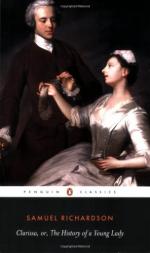And then, his head sinking on his pillow, he expired, at about half an hour after ten.
He little thought, poor gentleman! his end so near: so had given no direction about his body. I have caused it to be embowelled, and deposited in a vault, till I have orders from England.
This is a favour that was procured with difficulty; and would have been refused, had he not been an Englishman of rank: a nation with reason respected in every Austrian government—for he had refused ghostly attendance, and the sacraments in the Catholic way.—May his soul be happy, I pray God!
I have had some trouble also, on account of the manner of his death, from the magistracy here: who have taken the requisite informations in the affair. And it has cost some money. Of which, and of the dear chevalier’s effects, I will give you a faithful account in my next. And so, waiting at this place your commands, I am, Sir,
Your most faithful and obedient servant,
F.J. De la tour.
CONCLUSION
SUPPOSED TO BE WRITTEN BY MR. BELFORD
What remains to be mentioned for the satisfaction of such of the readers as may be presumed to have interested themselves in the fortunes of those other principals in the story, who survived Mr. Lovelace, will be found summarily related as follows:
The news of Mr. LOVELACE’s unhappy end was received with as much grief by his own relations, as it was with exultation by the Harlowe family, and by Miss Howe. His own family were most to be pitied, because, being sincere admirers of the inimitable lady, they were greatly grieved for the injustice done her; and now had the additional mortification of losing the only male of it, by a violent death.
That his fate was deserved, was still a heightening of their calamity, as they had, for that very reason, and his unpreparedness for it, but too much ground for apprehension with regard to his future happiness. While the other family, from their unforgiving spirit, and even the noble young lady above mentioned, from her lively resentments, found his death some little, some temporary, alleviation of the heavy loss they had sustained, principally through his means.
Temporary alleviation, we repeat, as to the Harlowe family; for they were far from being happy or easy in their reflections upon their own conduct. —And still the less, as the inconsolable mother rested not till she had procured, by means of Colonel Morden, large extracts from some of the letters that compose this history, which convinced them all that the very correspondence which Clarissa, while with them, renewed with Mr. Lovelace, was renewed for their sakes, more than for her own: that she had given him no encouragement contrary to her duty and to that prudence for which she was so early noted: that had they trusted to a discretion which they owned she had never brought into question, she would have extricated them and herself (as she once proposed* to her mother) from all difficulties as to Lovelace: that she, if any woman ever could, would have given a glorious instance of a passion conquered, or at least kept under by reason and by piety; the man being too immoral to be implicitly beloved.




